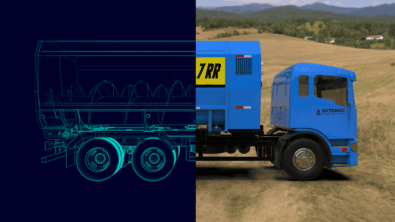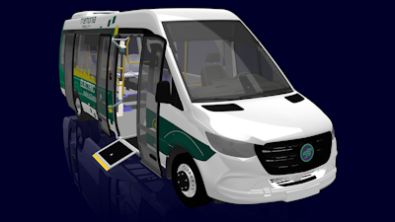The Key to Driving Disruption in Any Industry

Technology is advancing at a faster rate than ever before in history, and with that, product development—the way we design and manufacture products—is changing, too. This is a great thing, because it not only provides you with better tools to work with that make your job easier, but it also gives you the opportunity to innovate.
It’s only natural that products improve over time. As consumers, we’ve come to expect this. The latest smartphone, for example, has a higher resolution display, better camera, and faster processor than last year’s model. These are incremental improvements though, and it’s rare that a product is introduced that drastically changes the acceleration of progress. When it does happen, we all know the buzzword that is used to refer to this phenomenon: Disruption.
Which leads us to the question Dan Staples poses in his latest presentation from Develop3D Live in Boston: Are you driving disruption or is disruption driving you? If you want to be at the cutting edge of your industry—and I think we can all agree we want to be the ones to come up with the next big thing—it’s important to embrace the latest trends and advancements in technology. It’s a lot easier to be innovative when the tools you use aid in the design and manufacturing process rather than slow you down.

One way the software you use can inhibit your ability to innovate is when making design changes, specifically if you are limited to using the history tree. Design is not linear, and often the best designs come from many iterations. When you are restricted to history-based modeling though, you become locked into a particular design. If you go back to make a change, suddenly you have all these red X’s that indicate problems you have to fix. Often, it’s easier to just start over from scratch. Not so with Synchronous Technology in Solid Edge. Watch the replay of Dan’s presentation (linked at the bottom of this blog) to see how it is possible to make a significant design change in under 2 minutes with the power of Synchronous Technology.
Solid Edge also offers a significant advantage to help you drive disruption when it comes to the latest digital trends in product development: generative design, reverse engineering, and additive manufacturing. These are powerful mesh-based technologies, meaning the geometry is made up of tiny triangles stitched together to form a mesh, and they’re rapidly growing. While every CAD vendor out there has been talking about them, when it comes right down to it, not all of these solutions are created equal.

In an ideal world, they would work together harmoniously: Generative design and reverse engineering would flow into your design, which you could then easily additively manufacture. Almost any other CAD system requires you to perform days of surfacing in order to use generative design results in your traditional solid (b-rep) model though. Generative design has to provide more than just visual inspiration. The same problem occurs with reverse engineering. Scanning is now the easy part; the challenge is how to incorporate that scanned data into a solid model. Finally, how can you reap the full potential additive manufacturing offers if you can’t develop parts that take advantage of it?

Convergent modeling is the key. This Siemens technology integrates the solid model with the mesh model, enabling you to operate seamlessly between the two. In fact, when you watch Dan’s presentation, you’ll notice he points out that the example of convergent modeling in use looks unremarkable because you just see feature modeling. The truly remarkable part is that what you’re seeing is feature modeling on a mesh model. The result of this technology is a streamlined process in which you can realize the power of generative design, reverse engineering, and additive manufacturing in product development.
Watch the replay of the presentation to see the examples mentioned above, and hear from Craig Hall of Hall Designs on how his team is using generative design and additive manufacturing in the exciting, fast paced world of Baja racing. You’ll also learn from Dan Staples why Solid Edge believes software access should be your choice and what the future holds in store for Solid Edge on the cloud.



Comments